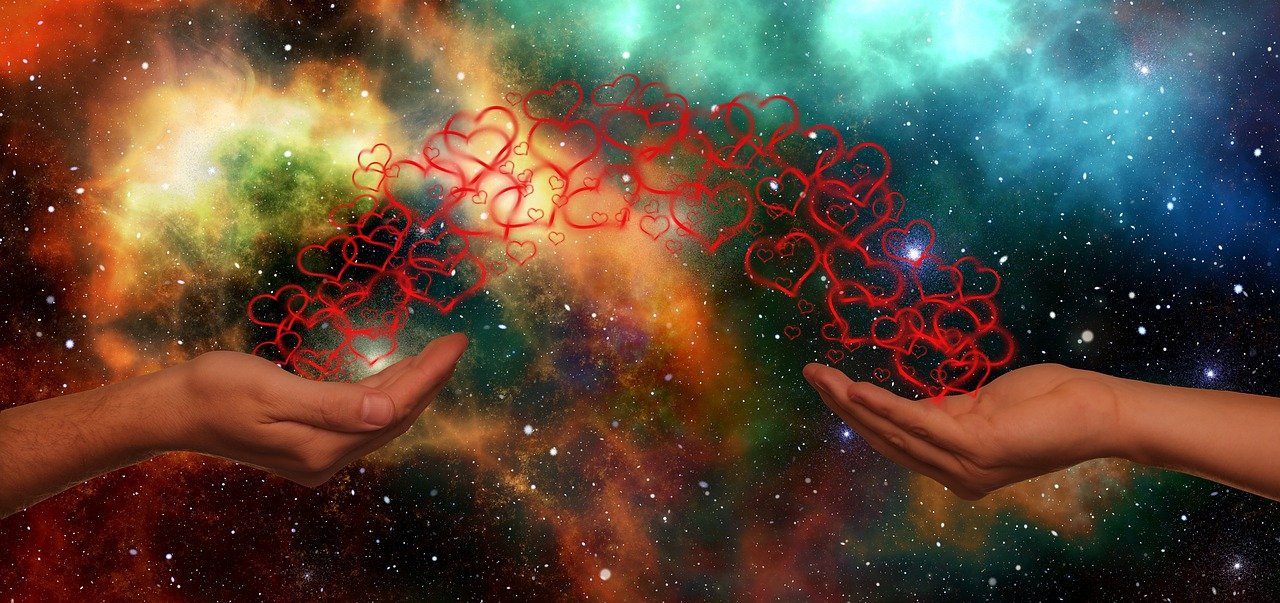Have you ever wondered about the role of forgiveness in spirituality? Whether you are on a personal journey or seeking deeper meaning in life, forgiveness plays a pivotal role in our spiritual growth and understanding. It holds the power to heal wounds, release negativity, and cultivate a sense of peace within ourselves and with others. By exploring forgiveness from a spiritual perspective, we can unlock the transformative potential it holds and embrace the profound impact it can have on our overall well-being. In this article, we will delve into the role of forgiveness in spirituality and discover how it can guide us towards a more enlightened and compassionate existence.
Understanding Forgiveness
Forgiveness is an integral aspect of spirituality that plays a significant role in personal growth and achieving inner peace. It is a transformative process that involves letting go of resentment, anger, and the desire for revenge. By embracing forgiveness, you release the emotional burdens that weigh you down and hinder your spiritual evolution. In this article, we will delve into the concept of forgiveness, explore its various types, and examine its role in different religions.
Defining Forgiveness
At its core, forgiveness is the conscious choice to release negative emotions and thoughts towards oneself or others who have caused harm, hurt, or betrayal. It entails a shift in perspective, allowing you to view the situation from a place of empathy, understanding, and compassion. Forgiveness does not mean condoning or forgetting the actions that led to the pain but rather, it involves finding inner peace and choosing to let go of the emotional baggage associated with the situation.

Types of Forgiveness
Forgiveness manifests in several forms, each serving a unique purpose on the spiritual journey. Firstly, there is self-forgiveness, which involves accepting and forgiving oneself for past mistakes, regrets, or shortcomings. It is important to recognize our human fallibility and grant ourselves the same compassion and understanding we offer others. Secondly, there is forgiveness of others, where we release resentment towards those who have wronged us, allowing healing and reconciliation to take place. Lastly, there is forgiveness of the universe, which entails accepting and making peace with the circumstances or events that are beyond our control.
The Concept of Forgiveness in Different Religions
Forgiveness is a concept widely embraced by various religions around the world. In Christianity, forgiveness holds central importance, with Jesus Christ exemplifying the ultimate act of forgiveness on the cross. The Christian doctrine emphasizes the necessity of forgiving others as a means of receiving God’s forgiveness. Similarly, in Buddhism, forgiveness is considered an essential practice for spiritual liberation. The teachings of Buddhism highlight the interconnectedness of all beings and the importance of cultivating compassion and forgiveness towards oneself and others. Furthermore, forgiveness plays a vital role in Islam, where it is seen as an act of worship. Muslims are encouraged to forgive others and seek forgiveness from Allah, as it brings inner peace and draws them closer to the divine.

Forgiveness as a Spiritual Practice
Forgiveness is not merely a one-time act but a continuous practice that cultivates inner peace, healing, and personal growth. It encompasses forgiving oneself, others, and the universe, each serving as a crucial component of the spiritual journey.
Forgiving Oneself
Self-forgiveness is a fundamental aspect of personal growth and spiritual evolution. Often, individuals hold onto guilt, shame, and regret for past actions or decisions that they perceive as mistakes. However, by forgiving oneself, you acknowledge your fallibility as a human being and allow yourself to let go of self-judgment and negative self-perception. Self-forgiveness opens the door to self-compassion, self-acceptance, and a deeper understanding of your true worth.
Forgiving Others
Forgiving others can be a challenging but transformative process. It requires setting aside your ego, releasing resentment, and viewing the situation from a place of empathy and compassion. Forgiveness does not mean condoning or forgetting the actions of others but rather, it liberates you from the emotional burden of holding onto anger, hurt, or grudges. By forgiving others, you free yourself from the cycle of negativity and open up space for healing and reconciliation.
Forgiving the Universe
At times, life presents us with circumstances or events that are beyond our control. These may include losses, disappointments, or challenging situations that test our resilience. Forgiving the universe involves accepting these circumstances, surrendering to the flow of life, and finding peace amidst the chaos. It is about cultivating trust in the divine order of things and understanding that every experience, whether pleasant or painful, holds valuable lessons for our spiritual growth.
Promoting Inner Peace and Healing
Forgiveness serves as a catalyst for promoting inner peace, healing, and overall well-being. By releasing resentment, anger, and negative emotions, you create space for tranquility, joy, and love to flourish within you.
Releasing Resentment and Anger
Resentment and anger are like poison that slowly erodes your inner peace and consumes your emotional well-being. By consciously choosing forgiveness, you release these toxic emotions and create room for healing and transformation. It allows you to redirect your energy towards growth, positivity, and the pursuit of inner peace.
Letting Go of Past Hurt
Holding onto past hurt and grievances keeps you stuck in a cycle of pain and suffering. Forgiveness enables you to break free from this cycle by releasing the emotional attachments to past wounds. By letting go of the pain, you open yourself to new possibilities, personal growth, and the freedom to create a brighter future.
Embracing Compassion and Empathy
Forgiveness is rooted in compassion and empathy. When you choose forgiveness, you acknowledge the humanity in yourself and others. It allows you to view the situation from a place of understanding, compassion, and empathy. By embracing these qualities, you deepen your connection with others and contribute to a more harmonious and compassionate world.

Connectivity and Unity
Forgiveness acts as a bridge that connects individuals and fosters unity, understanding, and reconciliation. It has the power to transcend differences, bridging gaps between people and communities.
Forgiveness as a Bridge Between Individuals
In interpersonal relationships, forgiveness plays a vital role in resolving conflicts and restoring harmony. It allows individuals to move beyond their differences, let go of grievances, and focus on building a deeper connection based on compassion and understanding. Forgiveness recognizes the shared humanity in each person and encourages empathy and reconciliation.
Forgiveness as a Tool for Reconciliation
In situations of conflict or wrongdoing, forgiveness is a powerful tool for reconciliation. It opens the pathway for healing, dialogue, and understanding between parties involved. Through forgiveness, individuals can rebuild trust and work towards finding common ground, fostering unity, and creating a more peaceful coexistence.
Forgiveness in Interconnectedness
The concept of interconnectedness lies at the heart of forgiveness. When you forgive, you recognize the interdependence and interconnectedness of all beings. By choosing forgiveness, you contribute to a larger collective consciousness that promotes harmony, love, and unity. It is through forgiveness that we realize our inherent oneness and work towards creating a more compassionate and interconnected world.
Transcending Ego and Cultivating Love
Forgiveness is a transformative practice that goes beyond the limitations of the ego, allowing you to tap into the infinite power of love and compassion.
Letting Go of the Ego’s Grip
The ego often feeds on resentment, anger, and the need for self-justification. However, forgiveness requires transcending the ego’s grip and embracing a higher perspective rooted in love and understanding. By letting go of ego-driven reactions, you create space for love, compassion, and spiritual growth to thrive.
Fostering Unconditional Love
Forgiveness aligns with the essence of unconditional love. It involves extending love, compassion, and understanding even in the face of hurt or betrayal. Through forgiveness, you cultivate a deep sense of love that is not contingent on external circumstances but rather, a love rooted in the recognition of our shared humanity. Unconditional love not only benefits others but also nourishes your own soul, leading to personal transformation and spiritual evolution.
Expanding Consciousness
Forgiveness expands your consciousness by breaking down the barriers of judgment, resentment, and separation. It allows you to embrace a broader perspective and tap into a higher state of awareness. Through forgiveness, you transcend the limitations of the ego, connecting with the divine and expanding your consciousness to encompass the interconnectedness of all beings.
Forgiveness and Karma
In spiritual teachings, forgiveness is closely tied to the concept of karma, which refers to the law of cause and effect. Understanding the role of forgiveness in the realm of karma can help break negative patterns and foster spiritual growth.
Breaking Negative Karmic Patterns
Forgiveness plays a pivotal role in breaking negative karmic patterns. When you forgive others, you release the negative energy associated with the past actions, liberating yourself from the cycle of repeating similar patterns. By choosing forgiveness, you create space for new and positive experiences, thus altering the course of your karmic trajectory.
Clearing Karmic Debt
Forgiveness also helps in clearing karmic debt. When you forgive others for their actions, you release the energetic attachments that bind you to them. This act of forgiveness allows both parties to move forward and cultivate a more harmonious and balanced karmic exchange. By clearing karmic debt through forgiveness, you create space for growth, transformation, and spiritual evolution.
Transformation and Spiritual Growth
Forgiveness serves as a catalyst for transformation and spiritual growth. It requires a willingness to let go of old patterns, release attachment to the past, and embrace a higher state of consciousness. Through forgiveness, you embark on a journey of self-discovery, healing, and evolution, enabling you to align with your true spiritual potential.
Forgiveness and Manifestation
Forgiveness has a profound impact on the process of manifestation. By aligning your energy through forgiveness, you create fertile ground for positive manifestation and abundance.
Aligning Energy for Positive Manifestation
Forgiveness allows you to align your energy with higher frequencies that attract positive experiences and manifestations. When you let go of negative emotions and release attachments, you create space for new opportunities, abundance, and joy to enter your life. By forgiving yourself and others, you align your vibration with the frequency of love, compassion, and gratitude, thereby attracting experiences that resonate with these higher states of being.
Clearing Blocks to Abundance
Unresolved grievances, anger, and resentments can create energetic blocks that hinder the flow of abundance and prosperity. Forgiveness helps in clearing these blocks by releasing the negative attachments that hold you back. By forgiving others and yourself, you align yourself with the flow of abundance, allowing it to manifest in various forms in your life.
Creating a Higher Vibration
Forgiveness elevates your vibration, aligning you with higher states of consciousness. When you forgive, you let go of heavy emotions and embrace love, compassion, and understanding. This higher vibration creates a magnetic field that attracts positive experiences, opportunities, and relationships.
Releasing Attachments and Liberation
Forgiveness liberates you from the attachments that bind and limit your potential for happiness and spiritual growth. By releasing attachments, you experience freedom, liberation, and a deeper connection with your true self.
Detaching from the Outcome
Forgiveness involves detaching yourself from the desired outcome or the need for specific circumstances to unfold in a particular way. By letting go of expectations, you free yourself from the attachment to a predetermined outcome, enabling you to embrace the present moment and trust in the divine plan. This detachment allows for greater peace and contentment, regardless of the external circumstances.
Freedom from Suffering
Holding onto grievances, anger, or hurt perpetuates suffering and keeps you trapped in a cycle of pain. Through forgiveness, you break free from this cycle, liberating yourself from the burden of suffering. By releasing attachments to past pain, you create space for joy, peace, and inner freedom to flourish.
Embracing Liberation
Forgiveness is synonymous with liberation. It frees you from the shackles of past resentments, anger, and regrets, allowing you to live fully in the present moment. By embracing forgiveness, you liberate yourself from the limitations of the ego, and open yourself to the vast possibilities and potential that exist within and around you.
Forgiveness in the Face of Adversity
Forgiveness becomes especially significant in the face of adversity, challenging situations, and personal betrayals. It offers a pathway to inner healing, resilience, and growth.
Overcoming Betrayal and Betraying
Betrayal can be a deeply painful experience that fractures trust and leaves emotional scars. However, forgiveness holds the power to heal and restore that which has been broken. By choosing forgiveness, you release the resentment and anger associated with betrayal, thus allowing the possibility for healing, growth, and the rebuilding of trust. Additionally, forgiveness of oneself for betraying others enables personal growth, self-forgiveness, and a commitment to making amends.
Finding Forgiveness in Difficult Situations
Often, forgiveness seems to be the most challenging when faced with difficult situations or individuals who have caused immense pain. However, it is precisely in these moments that forgiveness becomes a transformative practice. Finding forgiveness in such situations requires a deep commitment to one’s spiritual growth, a willingness to let go of the anger, and a desire for personal healing. By choosing forgiveness, you transcend the limitations of the situation, find inner peace, and open yourself to the possibility of transformation.
Turning Challenges into Lessons
Forgiveness empowers you to transform challenges into valuable lessons. It allows you to view setbacks, difficulties, and personal hardships as opportunities for growth and spiritual evolution. By choosing forgiveness, you shift your perspective, recognizing that every challenge holds wisdom and the potential for personal transformation. Through forgiveness, you embrace the inherent lessons offered by adversity and move forward with resilience, strength, and gratitude.
Forgiveness and Inner Transformation
Forgiveness acts as a catalyst for inner transformation, healing wounds, expanding self-compassion, and achieving spiritual evolution.
Healing Wounds and Transforming Self-Perception
Forgiveness plays a crucial role in healing emotional wounds and transforming the way you perceive yourself. When you forgive, you release the pain associated with past hurt, allowing space for healing, self-acceptance, and self-love. By choosing forgiveness, you acknowledge your own worthiness and begin to perceive yourself through a lens of compassion, kindness, and limitless potential.
Expanding Self-Compassion
Self-compassion is an integral component of forgiveness and personal growth. Through forgiveness, you cultivate self-compassion by acknowledging your own vulnerability, embracing imperfections, and offering kindness and understanding to yourself. This expanded self-compassion creates a firm foundation for personal healing, growth, and spiritual evolution.
Achieving Spiritual Evolution
Forgiveness is a catalyst for spiritual evolution. By letting go of resentment, anger, and attachments, you create space for higher states of consciousness to emerge. Through forgiveness, you embark on a journey of self-discovery, self-transformation, and spiritual evolution. It opens the pathway to a deeper connection with the divine, expanded awareness, and a profound sense of inner fulfillment.
In conclusion, forgiveness is an essential spiritual practice that fosters personal growth, inner peace, and connection with the divine. By embracing forgiveness, you release emotional burdens, promote healing, and cultivate love and compassion. It has the power to transcend ego-driven reactions, break karmic patterns, and manifest positive outcomes. Forgiveness liberates you from attachments, fosters unity and interconnectedness, and enables inner transformation. It allows you to navigate adversity with grace and turn challenges into valuable lessons. Through forgiveness, you embark on a journey of self-discovery, expansion, and spiritual evolution, ultimately achieving a state of profound peace, joy, and love.
